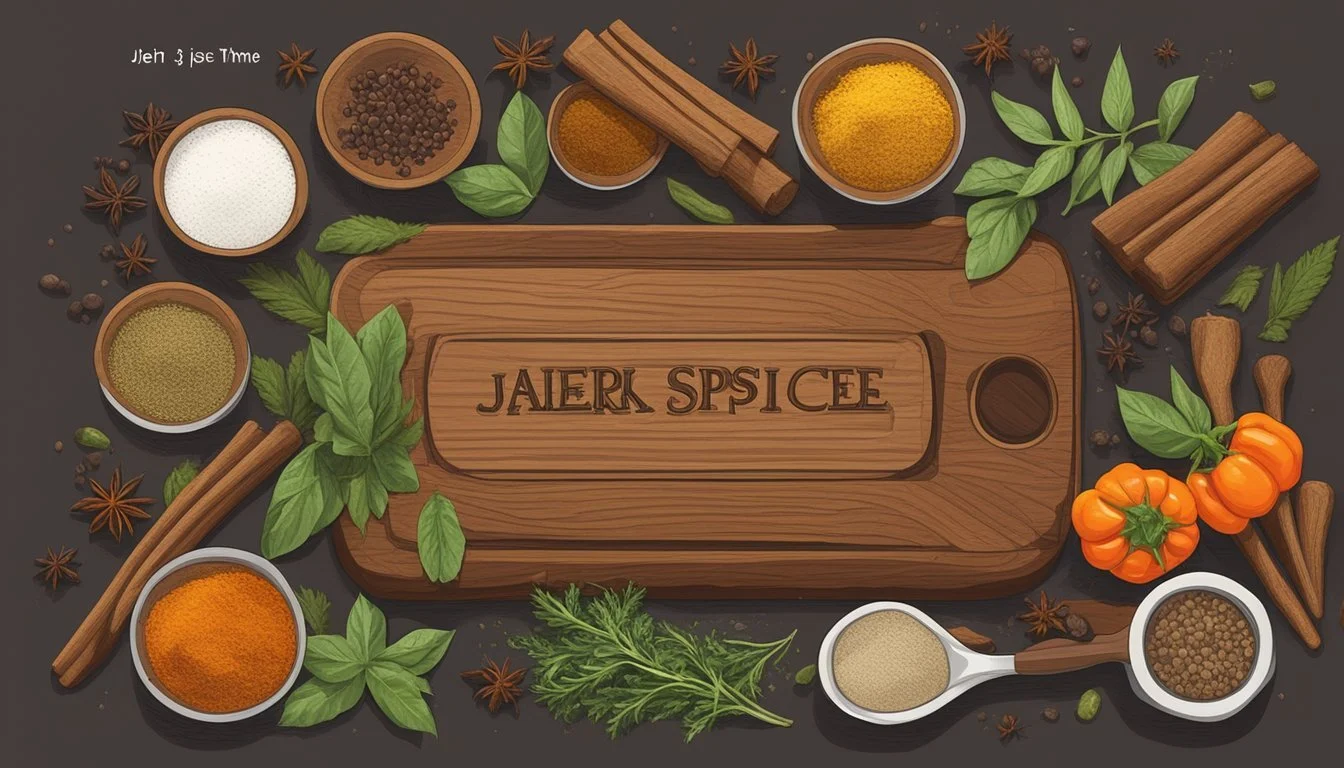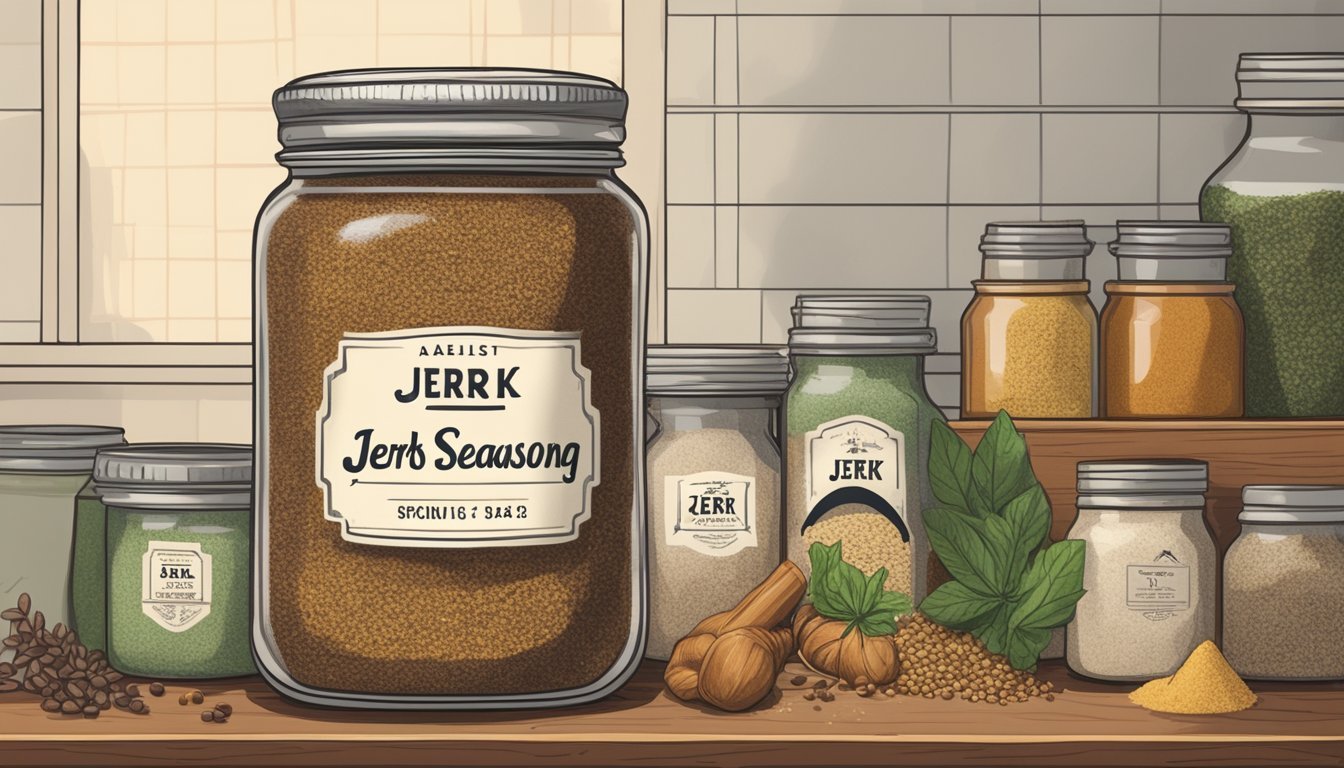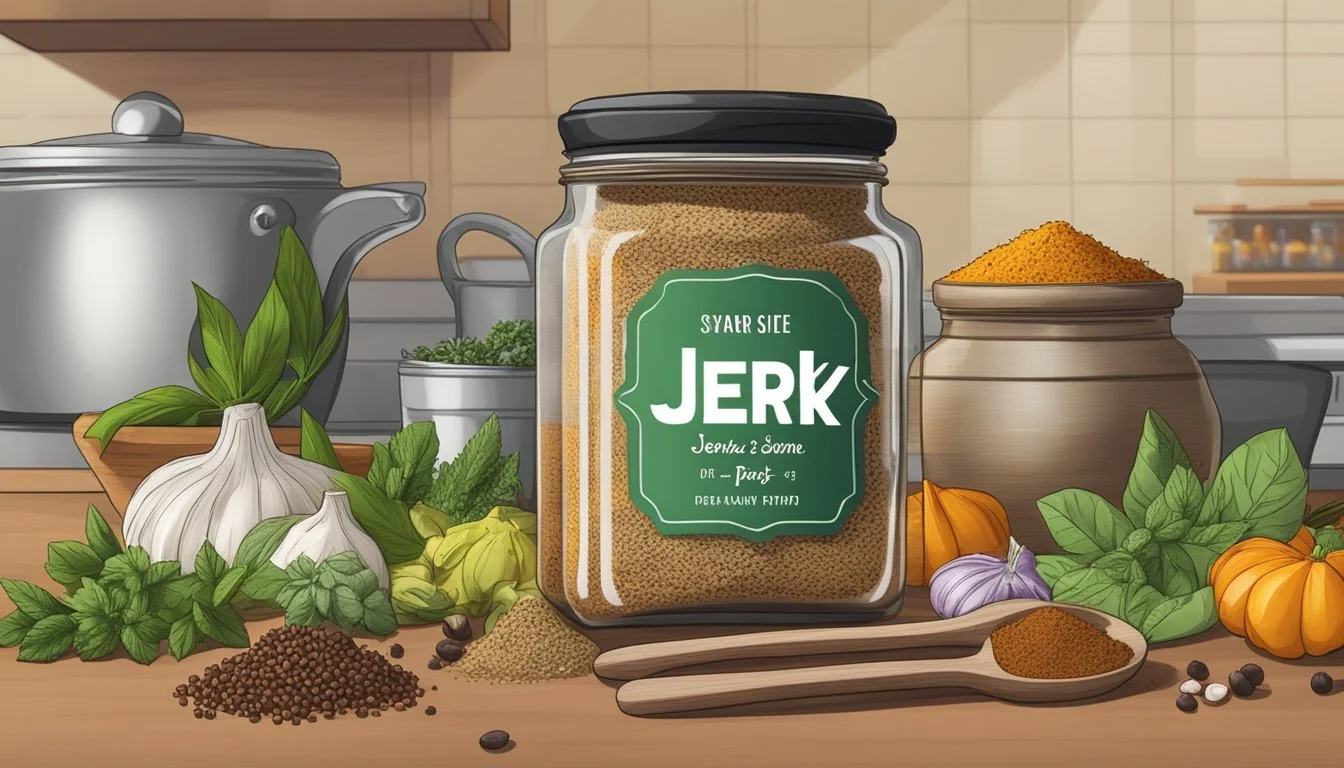Does Jerk Seasoning Expire?
Essential Shelf Life Tips
Jerk seasoning, a staple in Caribbean and Jamaican cuisine, is known for its vibrant mix of spices, including allspice, thyme, and Scotch bonnet peppers. People often wonder if this flavorful blend ever expires and how to ensure its longevity. While jerk seasoning does not spoil in a way that makes it unsafe to eat, its strength and flavor can diminish over time.
When stored correctly in a sealed container in a cool, dry, dark place, unopened jerk seasoning can maintain its best quality for about 2 to 3 years. Once opened, the seasoning is best used within six months to enjoy its full potency. Proper storage in containers with tight-fitting lids is crucial to retaining the blend's rich flavors and aromas.
Freshness is key to the savory and aromatic impact that jerk seasoning brings to dishes like jerk chicken. Outdated or expired spices might not deliver the desired taste, making meal preparations less exciting. Therefore, regularly checking and refreshing your spice cabinet can ensure your culinary creations remain full of life and zest.
Composition of Jerk Seasoning
Jerk seasoning is a robust blend essential to Caribbean cuisine, known for its potent, aromatic flavors. This seasoning includes several key ingredients, with variations and substitutes available, and can be found as either homemade or store-bought versions.
Main Ingredients and Flavor Profile
Jerk seasoning primarily features a mix of aromatic spices and herbs. Core ingredients include allspice, thyme, garlic, and scotch bonnet peppers. These elements provide the spicy and smoky characteristic often associated with jerk chicken.
Other common spices include cinnamon, nutmeg, and cloves. The spice blend often contains varied degrees of black pepper, cayenne pepper, and brown sugar to balance heat with a hint of sweetness. The seasoning’s potency relies heavily on the freshness and proper storage of these ingredients.
Variations and Substitutes
Jerk seasoning varies between blends, though essential components remain consistent. For those unable to source scotch bonnet peppers, alternatives such as red pepper flakes or cayenne pepper can be used.
Different recipes may feature paprika, onion powder, dried thyme, and garlic powder, tweaking the flavor profile to personal preference. Some blends might add ginger, cumin, or parsley to extend the mix’s complexity. Specific brands often create signature mixtures, each with unique variations in spiciness and aromatics.
Homemade vs Store-Bought
The choice between homemade jerk seasoning and store-bought versions hinges on convenience and control over ingredients. Homemade blends allow customization of flavor intensity, particularly the levels of scotch bonnet and allspice.
Store-bought seasonings, available from various brand options, offer consistency and save preparation time. They provide ease of use, as they are typically pre-mixed with the right balance of herbs and spices. Both types benefit from proper storage to retain flavor and potency, emphasizing airtight containers and a cool, dark place.
Understanding these elements ensures the best use of jerk seasoning, whether crafted at home or purchased pre-made. Each option promises a unique touch to Caribbean dishes like jerk chicken, enhancing the culinary experience with rich, complex flavors.
Shelf Life and Storage
Jerk seasoning can have a long shelf life if stored correctly. Key factors include proper storage conditions and recognizing the signs of spoilage to ensure quality and safety.
Determining Expiration
Jerk seasoning typically remains at its best quality for about 2 to 3 years when unopened. Once opened, it lasts around six months under ideal conditions.
Expiration dates are useful for gauging freshness but are not always definitive. It is essential to rely on sensory tests—checking color, smell, and taste. Even if the expiration date has passed, the seasoning might still be safe, though its potency could be diminished.
Optimal Storage Conditions
Unopened jerk seasoning: store in a cool, dark place like a pantry.
Opened jerk seasoning: transfer to an airtight container to protect from moisture and sunlight. Use glass jars or tightly-sealed plastic containers to maintain freshness.
Storage temperature should be consistent. Avoid exposing the seasoning to heat sources or direct sunlight, which can degrade its quality. Keeping the seasoning dry is crucial, as moisture can lead to clumping and spoilage.
Signs of Spoilage
To determine if jerk seasoning has spoiled, use the senses:
Color: The seasoning should retain a vibrant color. A faded appearance can indicate loss of quality.
Aroma: A strong, spicy aroma is a good sign. If it smells musty or bland, it might be past its prime.
Taste: Test a small amount. The seasoning should have a rich, distinctive taste. A flat or stale flavor suggests it's time to discard it.
Noticing these signs promptly helps prevent the use of spoiled seasoning, ensuring both flavor and safety in cooking.
Usage Tips and Techniques
When using jerk seasoning, knowing how to maximize its potency, adjust its heat and flavor, and explore alternative uses can elevate your culinary creations. These techniques will help you get the most out of this versatile spice mix.
Maximizing Potency in Recipes
To retain the full potency of jerk seasoning in your dishes, always use it with fresh, dried herbs and spices. Store the seasoning in airtight containers, away from light, moisture, and heat.
For marinating meat such as chicken, pork, or seafood, let it sit for a minimum of two hours or, ideally, overnight. This allows the flavors to deeply infuse into the protein. When using it as a dry rub, apply generously and let the meat rest for at least 30 minutes before cooking.
Adjusting Heat and Flavor
Jerk seasoning is known for its robust and spicy flavor profile, but adjusting the heat level to suit various palates is simple. To reduce the spiciness, use fewer crushed red peppers or cayenne pepper in your mix. Alternatively, for a milder taste, balancing it with other ingredients like green onions or fresh herbs can help.
If looking for extra heat, adding more Scotch bonnet peppers will intensify the spiciness. It is wise to adjust the seasoning slowly and taste regularly to achieve the desired level.
Alternative Uses of Jerk Seasoning
Besides common uses on chicken wings and pork, jerk seasoning is incredibly versatile. It can be used to flavor vegetables, making a unique addition to roasted or grilled vegetable dishes. Adding it to soups and stews provides a rich, spicy kick that enhances the overall taste.
Jerk seasoning can also be a delightful surprise in baked goods like spiced cornbread. It works well in smoking applications, further enhancing the smoky, charred flavors associated with Jamaican cuisine. Additionally, it can be incorporated into marinades for different proteins, making it a valuable addition to any cook's spice collection.
Cultural Significance and History
Jerk seasoning has rich cultural origins and a story that intertwines the flavors and history of Jamaican and Caribbean cuisine. The blend is not just a unique combination of spices but also a testament to the resilience and creativity of its creators.
Origins in Jamaican Cuisine
Jerk seasoning traces back to the indigenous Arawak people of Jamaica. The Arawaks used local spices to preserve and flavor their food. This tradition evolved significantly during the mid-seventeenth century when escaped African slaves, known as Maroons, integrated their cooking methods and spices with those of the Arawaks.
This fusion resulted in what we now know as jerk cooking. Traditionally, jerk seasoning involves dry-rubbing meat, often pork or chicken, with a mixture that includes allspice, Scotch Bonnet peppers, green onions, ginger, and thyme. The meat is then slow-cooked over a low fire made from green pimento wood.
Jerk Seasoning Beyond Jamaica
While rooted in Jamaican traditions, jerk seasoning has transcended its origins and become a favorite in Caribbean cuisine. In places like Trinidad and Tobago, Barbados, and even parts of the United States, jerk seasoning has found a welcoming palate.
Modern iterations of jerk seasoning maintain its essential components but adapt to local tastes and available ingredients. From street food vendors to upscale restaurants, jerk chicken and other jerk-seasoned dishes celebrate the iconic blend of spices and cooking techniques.
In addition, the widespread appeal has led to the commercial production of jerk seasoning blends, bringing this piece of Jamaican culture to kitchens worldwide.
Preservation Techniques
Proper preservation techniques can significantly extend the shelf life of jerk seasoning, maintaining its flavor and potency. Key methods include correct storage conditions and the use of airtight containers to keep moisture and contaminants at bay.
Extending Shelf Life
To effectively extend the shelf life of jerk seasoning, store it in an airtight container. This prevents moisture from seeping in, which can degrade the quality and flavor of the spices.
Storage conditions are crucial. Jerk seasoning should be kept in a cool, dry, and dark place. Temperature fluctuations and light exposure can diminish the seasoning's potency. Aim for a constant temperature that avoids heat sources like stoves or direct sunlight.
While freezing jerk seasoning is possible, it is not typically recommended. Freezing can affect the texture and flavor profile of the mix. If freezing is necessary, ensure the seasoning is tightly sealed to prevent freezer burn.
Regular checks for signs of spoilage, such as changes in aroma or appearance, can help maintain the seasoning’s quality. By adhering to these practices, jerk seasoning can remain fresh for up to six months after opening.
Frequently Asked Questions
How long does jerk seasoning last?
When unopened and stored properly, jerk seasoning can retain its quality for 2 to 3 years. Once opened, it typically lasts up to six months.
What happens when jerk seasoning spoils?
Spoiled jerk seasoning may lose its potency, flavor, and aroma. The spices might also start to clump together.
Can I freeze jerk seasoning?
While freezing spices is possible, it is not recommended for jerk seasoning. Freezing might affect the texture and flavor of the blend.
How should jerk seasoning be stored?
Store jerk seasoning in a cool, dry, and dark place. Seal it tightly in containers with tight-fitting lids to maintain quality.
Does jerk seasoning change flavor over time?
Yes, over time, jerk seasoning may lose its strong, distinctive flavor. The spices can become less potent, impacting the overall taste.
Can spoiled jerk seasoning make food taste sour?
While it may not make the food taste sour, spoiled jerk seasoning can lead to a bland or unpleasant taste.
What are the key flavors in jerk seasoning?
Jerk seasoning features a mix of sweet and spicy notes from ingredients like ground cinnamon, coconut sugar, cayenne pepper, and dried herbs.
Does jerk seasoning affect the tenderness of meat?
Jerk seasoning itself doesn't tenderize the meat. However, its robust flavors can enhance the perception of tenderness when used in marinades.








